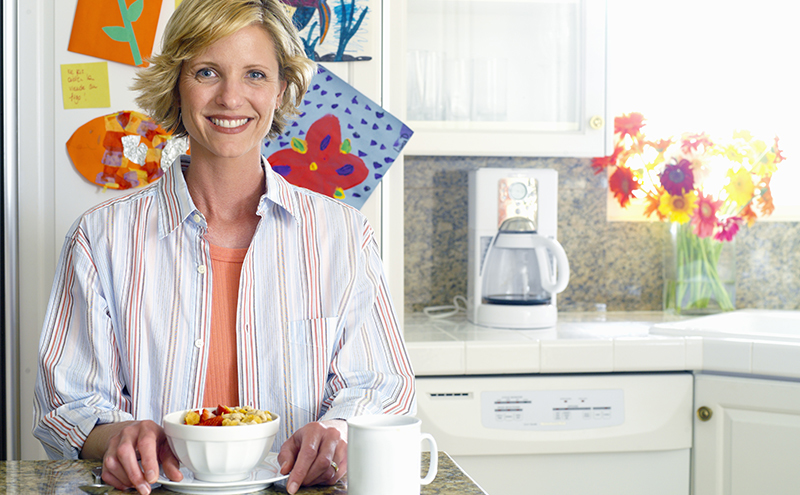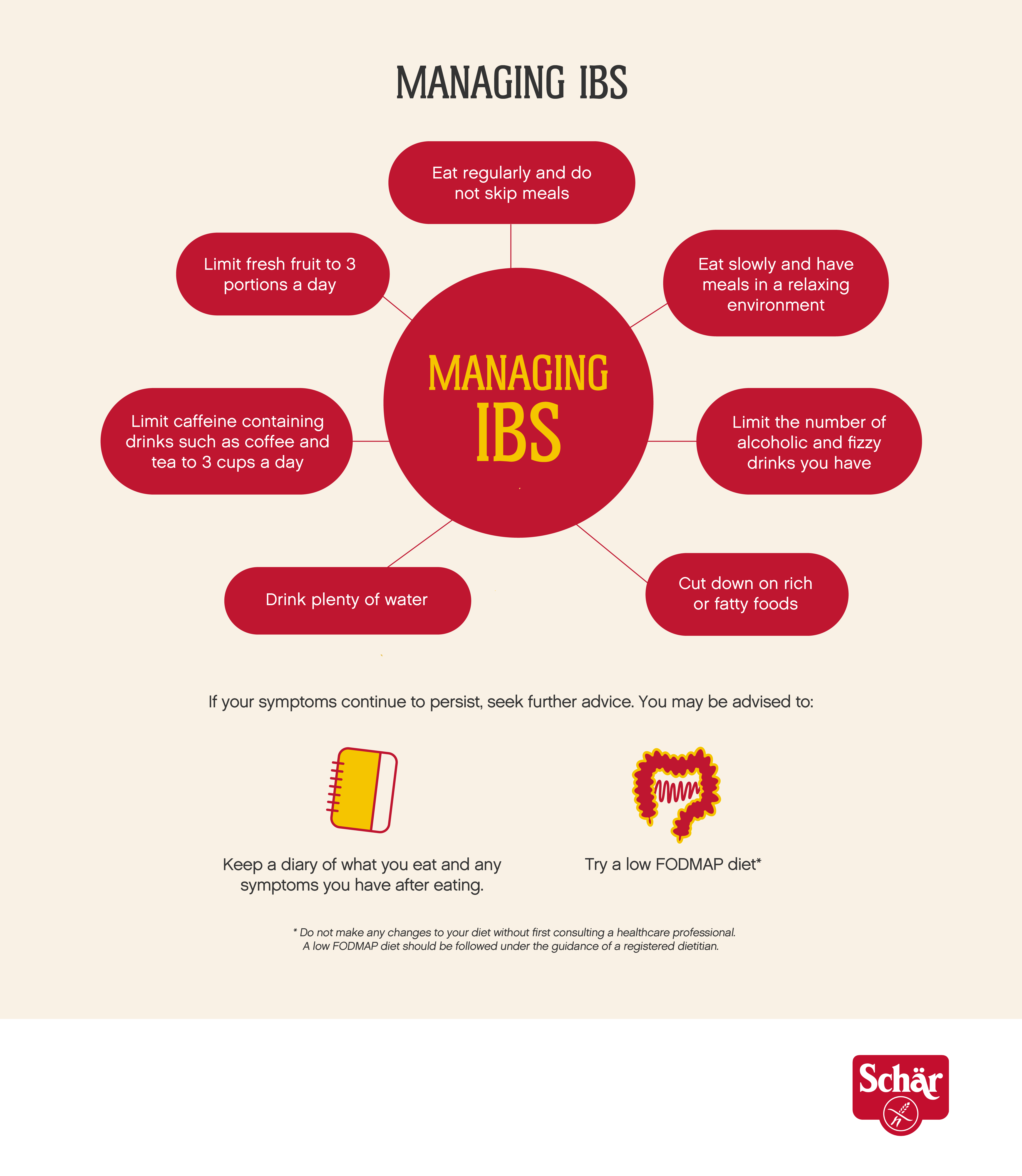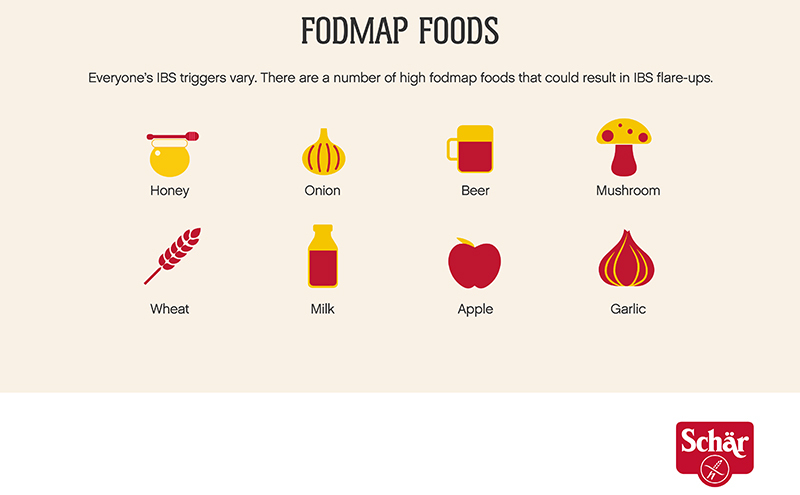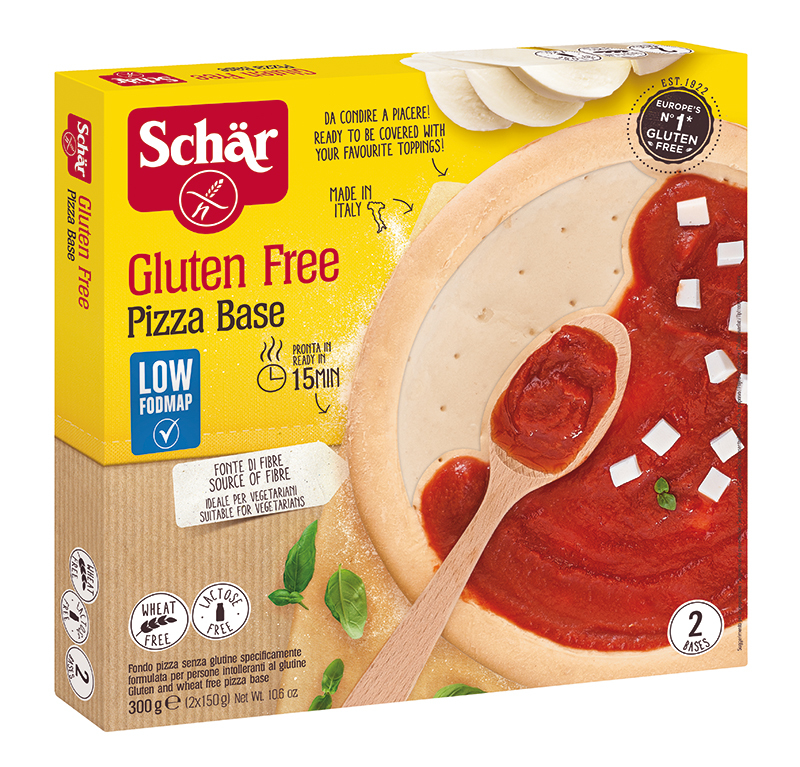Tips On Managing Irritable Bowel Syndrome (IBS)

April is IBS Awareness Month. To help raise awareness and support those with an irritable bowel, here are some top tips from the IBS Network and special-diets food manufacturer Schär.
Schär registered dietician Katie Kennedy and Alison Reid, CEO of the national charity The IBS Network, provide information and advice on diagnosing and managing your IBS.
How common is IBS?
Registered dietician Katie says, “Irritable Bowel Syndrome (IBS) is a common condition, with around a third of UK adults saying they have, or have suffered, symptoms of IBS. This accounts for over 16 million people in the UK alone.
IBS is most commonly diagnosed in women aged 30-50 years. However up to 50% of IBS cases remain undiagnosed.”
What symptoms should I look out for?
Alison of The IBS Network explains, “Symptoms of IBS can include abdominal pain, sometimes severe, bloating, diarrhoea and/or constipation. If your symptoms have been experienced for more than six months, it is important that you speak to your GP. They may refer you for tests to rule out other conditions like coeliac disease or bowel cancer.
“Even if your GP has diagnosed IBS you should always seek further advice if your symptoms change.”
Are there different types of IBS?
Katie says, “Yes. The different types include IBS with constipation (IBS-C) and IBS with diarrhoea (IBS-D).
“Some people have an alternating pattern of constipation and diarrhoea, called mixed IBS (IBS-M).
“Other people do not fit into these categories easily and are called un-subtyped IBS, or IBS-U. Your GP will be able to help you work out what condition you might have.”
What triggers my IBS?
Katie says, “Stress and a hectic lifestyle play a big part in provoking IBS flare-ups. Simple steps such as ensuring you eat regular meals and snacks, taking more time over meals, and participating in regular exercise can help reduce IBS symptoms for some people.
“Water is also important in helping to keep your digestive system functioning properly. If you are suffering from constipation, water can help make stools softer. If you are suffering from diarrhoea make sure you drink plenty of water to help keep hydrated.
“Research has also shown that gut-directed hypnotherapy and yoga may also assist in the management of this condition.”
What else can I do to help myself?
 Alison explains, “There are lots of other ways to help manage IBS symptoms with simple dietary and lifestyle changes. These include:
Alison explains, “There are lots of other ways to help manage IBS symptoms with simple dietary and lifestyle changes. These include:
- Limiting your intake of caffeine, alcohol and fizzy drinks
- Ensuring you get enough sleep
- Looking at ways to help you manage stress in your daily life.
How can a low FODMAP diet help?
Katie explains, “While first line advice for managing IBS focuses on simple dietary and lifestyle changes, individuals who find their symptoms persist should consider speaking to a dietitian about other dietary changes that could help their symptoms – such as following a low FODMAP diet.”
“The low FODMAP diet can help to reduce and manage IBS symptoms. It has been found to improve symptoms in 70-75% of patients.
“FODMAPs are carbohydrates (sugars) that are not easily digested by the gut and removing high FODMAP foods from your diet for 4-8 weeks and then carefully reintroducing them, can help you identify trigger foods that might be causing your IBS flare-ups.
“A low FODMAP diet should only be followed under the guidance of a registered dietician.”
Which foods can I eat on a low FODMAP diet?
“Your dietitian will guide you as to what foods you can eat when following the 4-8 week low FODMAP diet,” says Katie. “Schär has also recently launched a range of 10 products, which have been certified as low FODMAP. Clear stickering can be found on-pack.”
Schär is the first brand to launch low FODMAP products – certified by Monash University, Australia – in UK supermarkets.
Where can I get more information and advice?
“Once you have been diagnosed with IBS by your doctor, you may be referred to a registered dietician,” explains Alison. “It is important that you seek advice and support from a trusted source, as there is a lot of misinformation on the internet.
“The information on our website has been written by IBS-specialist gastroenterologists and gastro registered dietitians.”
Katie adds, “Check out Schär’s online information hub which features recipes, helpful advice and information.
“Visitors to the site can also sign up for a free pack which includes a booklet about IBS and the low FODMAP diet, recipe cards, and a helpful fridge sticker which outlines foods that are safe to eat.”
Tips for eating with coeliac disease






